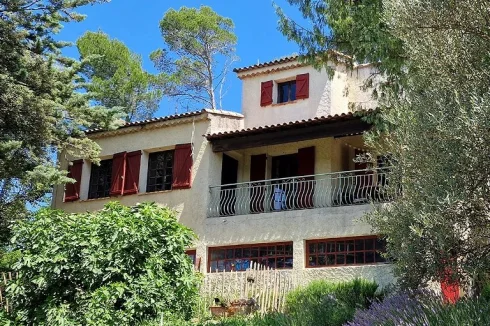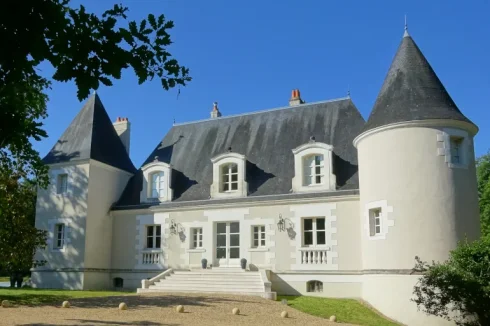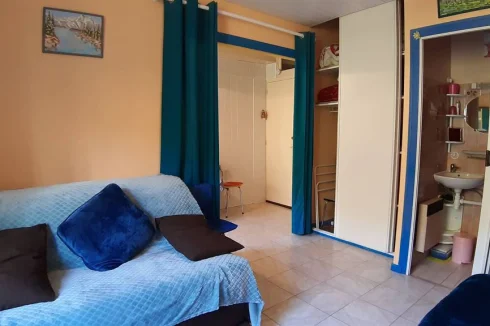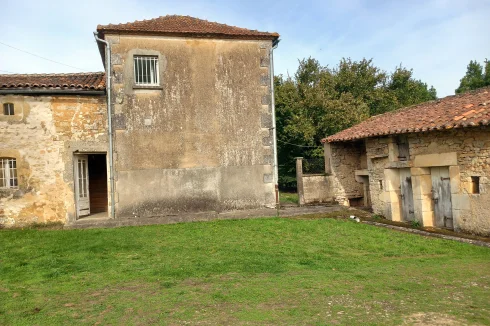Insulation Requirements on Property Renovation
Wednesday 03 August 2016
Substantial new roof and wall insulation requirements have been imposed on building renovation projects, although with a number of important derogations.
In 2013, the Réglementation Thermique 2012 came into force substantially increasing the energy performance standards for most new construction work (new builds and extensions).
That was followed by Décret n° 2013-979 du 30 octobre 2013, which extended the obligation to study different energy supply solutions for new buildings.
The government has now turned its attention more firmly to property renovation projects, with a regulation that makes it obligatory for owners to undertake complete insulation of the external wall and roof as part of any major building works, including the conversion of attics, garages, etc into habitable space.
The change is operative from 1st January 2017 for estimates accepted after this date.
During the legislative consultation process there was substantial opposition from the architectural profession, who feared that it would lead to a destruction of the architectural quality of buildings and that the cost of such works would be excessive.
As a result, a number of important exceptions have been included in the regulation, which are likely to render the requirement inoperational in many cases.
First, it only applies where at least 50% of the roof is to be renewed, or at least 50% of the external surfaces of the walls are to be renewed, for example, new rendering.
Second, the property is exempt if there is a risk to the structural integrity of the building by undertaking such insulation works.
Third, the exemption applies if the insulation works would not comply with any easements or legislative constraint governing the ownership and use of the property.
Fourth, the requirement does not apply where the property is located in a conservation area (secteurs sauvegardés, aires de mise en valeur de l’architecture et du patrimoine, sites inscrits et classés), or that it is a listed building (monument historique), and the works would involve changes to the characteristics of the building that would not be consistent with the requirements of that classification.
Fifth, that the works would have a manifestly negative impact on the external aspect of the property, the use of the property or that the costs of such works would be excessive.
As this final exemption condition is likely to be one that is the subject of great uncertainty and controversy it is worth stating it in full:
'Il existe une disproportion manifeste entre les avantages de l’isolation et ses inconvénients de nature technique, économique ou architecturale, les améliorations apportées par cette isolation ayant un impact négatif trop important en termes de qualité de l’usage et de l’exploitation du bâtiment, de modification de l’aspect extérieur du bâtiment au regard de sa qualité architecturale, ou de surcoût.'
In order to obtain exemption on architectural grounds the owner will need to provide a report to the planning authority by a qualified architect.
In relation to exemption on grounds of excessive cost, it will be necessary to demonstrate that the period for the return on investment from undertaking the insulation works would be greater than 10 years. The architect must use and attach an approved calculation method to prove the return would exceed 10 years. It is assumed that this claurse refers only to those properties in the investment market, but the regulation is silent on this point.
In all cases there would be a cost involved in seeking an exemption, which may of course be refused or contested by the planning authority.
What also remains unclear is just how the authorities will be able to keep a track on such projects, as neither roof renewal or renewal of the external finish of a wall ordinarily requires planning consent, unless there are changes to the external appearance of the property.
In addition, it is unclear if the regulation applies where phased completion of the works is to be undertaken, so that in any single contract less than 50% of the works is carried out.
Arthur Cutler of planning consultants French Plans commments: "Unfortunately, there are likely to be many uncertainties whilst the planning authorities interpret the new regulations and planning applications are dealt with on a case by case basis, and it may be well into 2017 before things become clearer. It is also worth noting that local inconsistencies are likely until case history is made and clarification/revision of the law is considered."
If you are required to undertake such works, there is financial assistance available in the form of tax credits and grants for works of energy conservation.
Back To: French News
Thank you for showing an interest in our News section.
Our News section is no longer being published although our catalogue of articles remains in place.
If you found our News useful, please have a look at France Insider, our subscription based News service with in-depth analysis, or our authoritative Guides to France.
If you require advice and assistance with the purchase of French property and moving to France, then take a look at the France Insider Property Clinic.





